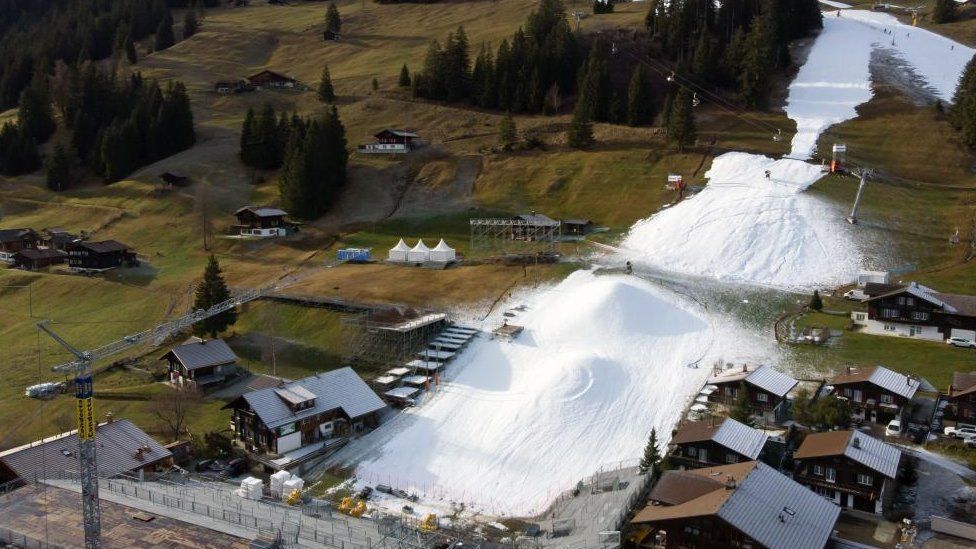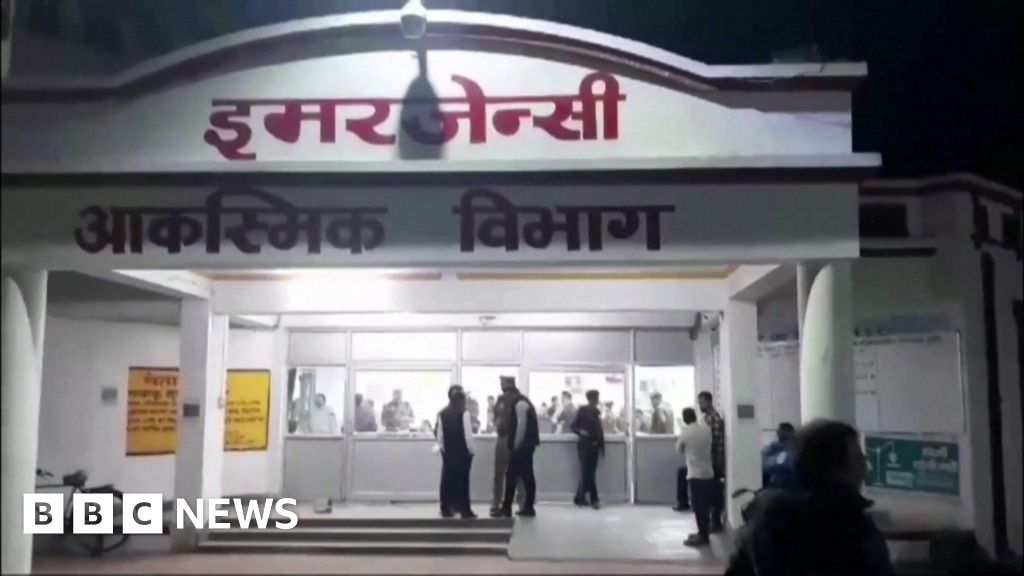ARTICLE AD BOX
 Image source, EPA-EFE/REX/Shutterstock
Image source, EPA-EFE/REX/Shutterstock
This was the scene just before the new year as Adelboden prepared to host the Alpine Skiing World Cup on 6 January
By Imogen Foulkes
BBC News, Bern
They have been holding their breath in the Swiss resort of Adelboden, as New Year temperatures in Switzerland hit a record 20C - the highest ever north of the Alps in January.
Many wondered if next weekend's ski World Cup would go ahead, as the usual snowy slopes were mud and grass.
Even at 2,000m (6,500ft), the temperature was above freezing.
In the end, the famous Chuenisbärgli piste has been approved for use for the big slalom events.
It took the help of an army of snow cannon, as well as a slight drop in temperature at the top of the run. But when the world's top men's skiers hurtle across the finish line, they will be on artificial snow.
Across the Alps, the unseasonably warm wet weather has put a real damper on the start of the ski season.
The word for it here is Schneemangel or snow shortage. There's a phrase for when the snow is plentiful too - das weisse Gold - white gold. It's a reflection of how many alpine communities depend on winter sports for their livelihoods.
Image source, Getty Images
Image caption,Skiers at this resort in Seefeld in western Austria are urged to stick to the slope
This January, they are having to rethink.
In Austria, the resorts around Salzburg last had snow a month ago. In Chamonix in France, the snow cannon are idle because the water to fuel them is in short supply.
In Switzerland, some resorts have even opened their summer biking trails rather than try to offer winter sports. Others have simply shut down their ski lifts indefinitely.
Climate experts suggest we should not be surprised by this January weather. Global warming, they have long warned, will cause warmer, wetter winters. But as with the shrinking of the Alpine glaciers, the rate at which ski resorts become unviable seems to be accelerating.
Just a few years ago, Swiss resorts were warned that skiing below 1,000m was, over time, likely to become impossible as global temperatures rose. But this week, the resort of Splügen, at 1,500m considered "snow safe", shut down until further notice.
Image source, ANTHONY ANEX/EPA-EFE/REX/Shutterstock
Image caption,These Swiss snowboarders are having to deal with far less of the white stuff than they would like
Hacher Bernet, the director of Splügen's ski lifts, graphically showed Swiss journalists why he had taken such a difficult decision.
Picking up a lump of snow from the slope, he held it out: not fluffy white powder, but a lump of dripping slush.
"It's really too wet, like in spring. For skiing, the snow needs to hold together - there's just too much water in this, it's impossible."
Across the Alps, anxiety is mounting. After two years of reduced income because of the pandemic, winter resorts have been banking on a return to normal.
In February and March, schools in Europe break up for the winter "ski week". Tens of thousands of families will head to the mountains expecting to ski. Snow needs to come, soon.
But for now, the weather forecast remains warm and wet.

 1 year ago
14
1 year ago
14








 English (US)
English (US)